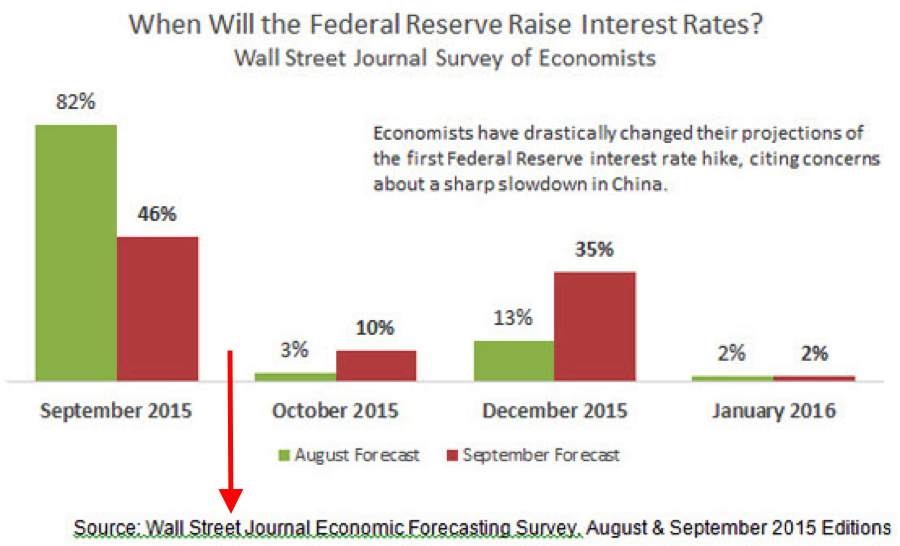China’s Growth Sputters
Fresh data out of China showed that factory output missed expectations, supporting the view that China’s economic growth may dip below 7% for the first time since the global recession. Infrastructure investment also fell, leading many experts to believe that China’s central government may be forced to roll out new measures to boost economic growth.[2]
Will the Federal Reserve Raise Interest Rates?
This week, the eyes of the world will be on the Federal Reserve as the Open Market Committee votes on whether to raise interest rates for the first time in nearly a decade. The FOMC meets Wednesday and Thursday and will issue their official statement Thursday afternoon. The most recent Wall Street Journal survey of private economists shows that experts are split. Last month, a whopping 82% of economists thought that the Fed would pull the trigger this week; now, just 46% think the Fed will act this month.[3]

There are strong arguments to make on both sides of the issues. On the pro-rate-hike side are the opinions that too much easy money may fuel asset bubbles. Near-zero-rates also leave the Fed without ammunition in the event of another downturn. I am in favor of a hike, sooner rather than later—we have kicked this can down the road long enough. Markets loathe uncertainty and this is a big uncertainty that continues to loom and hurt investor’s confidence.
On the hold-rates-steady side is the opinion that recent market volatility and ongoing concerns about global economic growth could spark another spate of selling if the Fed moves to raise rates now.[4]
Realistically, if the Fed moves this week to raise rates, they will likely announce a quarter-point raise to target interest rates in the 0.25%-0.50% range. How will markets react to a rate decision? It’s hard to say. Yesterday’s move up I feel indicates a pro-hike market that is braced for a 0.25% hike this week. Hopefully, investors will continue to view an increase as a vote of confidence in the economy and rally. Alternately, sentiment might sour on fears of a new economic downturn.
In the meanwhile, we will continue to invest your portfolio by our rules and indicators—NOT by what the Fed does (or does not), or what China does (or does not).
We’ve got you managed.